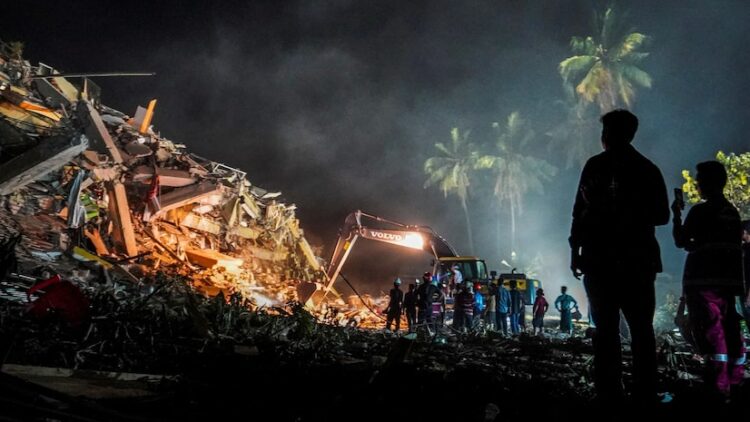Myanmar has been embroiled in turmoil since the military coup of 2021, which triggered mass protests demanding the restoration of civilian rule.
Myanmar is facing an unprecedented humanitarian crisis as a powerful earthquake claimed over 2,000 lives and left more than 3,900 injured, as of 31st March, according to a statement by a junta spokesperson.
The death toll in last week’s massive earthquake in Myanmar has passed 2,000, state media said on Monday, as accounts of some people’s last moments emerged: Two hundred Buddhist monks crushed by a collapsing monastery. #Myanmarhttps://t.co/gEHR1HFZaP
— The Siasat Daily (@TheSiasatDaily) April 1, 2025
However, as the country struggles to recover from the disaster, Myanmar’s military junta has continued to wage war against its own people, carrying out relentless airstrikes on villages.
The juxtaposition of this tragedy and ongoing military aggression has drawn international condemnation and intensified local resistance.
Widespread Condemnation of Junta’s Actions
The military’s inhumane actions have sparked outrage from the armed resistance movement. The Karen National Union (KNU), one of Myanmar’s oldest ethnic armed groups, accused the junta of bombing civilian areas instead of prioritizing relief efforts. In a statement issued on March 30, the group condemned the regime for escalating attacks while the nation grappled with devastation.
The Karen National Union (KNU) in a statement Sunday called for robust monitoring to prevent the military regime from misappropriating international aid after the Myanmar earthquake as it did in the wake of Cyclone Nargis in 2008.#WhatsHappeningInMyanmar pic.twitter.com/0RgRSwthrF
— The Irrawaddy (Eng) (@IrrawaddyNews) March 31, 2025
Similarly, the United Nations has also labeled the airstrikes as “completely outrageous and unacceptable.” UN Special Rapporteur on Myanmar, Tom Andrews, strongly criticized the military’s actions, highlighting at least three airstrikes in the Sagaing region—an area near the earthquake’s epicenter and a rebel stronghold.
The focus in Myanmar must be on saving lives not taking them. Junta military attacks must stop. Obstructions to aid must be lifted. Young people should not be fearing arrest or conscription. The international community must step up with greater levels of emergency aid. Now.
— UN Special Rapporteur Tom Andrews (@RapporteurUn) April 1, 2025
Andrews described it as “nothing short of incredible” that the junta continued to “drop bombs when you are trying to rescue people.” He called for an immediate halt to military operations and urged international actors to pressure the regime into ceasing attacks.
From Protest to Civil War
Myanmar has been embroiled in turmoil since the military coup of 2021, which triggered mass protests demanding the restoration of civilian rule. These demonstrations evolved into a full-blown insurgency, with pro-democracy groups and ethnic rebel factions joining forces against the junta.
The civil war has led to significant territorial losses for the military, which has increasingly relied on airpower to crush resistance. The Sagaing region, now the epicenter of the earthquake, is largely under the control of pro-democracy groups.
A BBC report states that resistance forces and ethnic armies now control approximately 42% of Myanmar’s territory.
Foreign Powers and the Battle for Myanmar
Despite international calls for an arms embargo, Myanmar’s military has received continued support from Russia and China. Both nations have provided the junta with sophisticated fighter jets and military training, enabling the regime to sustain its brutal air campaigns.
Ironically, while supplying weapons to the junta, Russia and China have also sent aid and rescue teams to assist in earthquake relief efforts. However, there is growing concern that the junta may exploit this aid as a weapon in the ongoing civil war, further deepening the suffering of the people caught in the conflict.
As Myanmar grapples with the twin crises of natural disaster and civil war, the international community faces mounting pressure to intervene.

















Comments